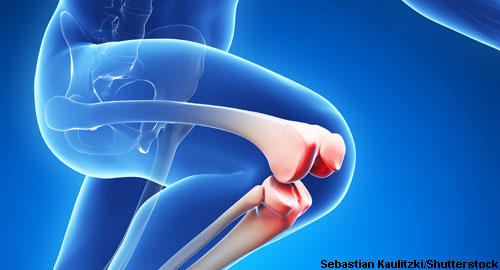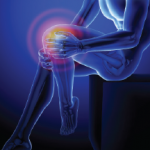 New insights into the role of inflammation in osteoarthritis (OA) from a research cohort at Brigham and Women’s Hospital in Boston are shedding light on how effusion synovitis of the knee is related to cartilage damage. This work may contribute to updated treatment options for patients with OA experiencing effusion synovitis.
New insights into the role of inflammation in osteoarthritis (OA) from a research cohort at Brigham and Women’s Hospital in Boston are shedding light on how effusion synovitis of the knee is related to cartilage damage. This work may contribute to updated treatment options for patients with OA experiencing effusion synovitis.
“We are very interested in inflammation in OA. We are thinking it has a bigger role than previously thought,” says Lindsey MacFarlane, MD, a rheumatologist at the Brigham and Women’s Hospital Arthritis Center and lead investigator on the cohort’s study, which was presented at the 2017 ACR/ARHP Annual Meeting in San Diego.1
Building off the knowledge that synovitis is a common feature in meniscal tear and OA, Dr. MacFarlane and colleagues wondered how the presence or the persistence of effusion synovitis could be associated with changes in cartilage damage in patients with concurrent meniscal tear and OA. The goal with this work was to fill a gap in understanding how effusion synovitis may change over time in certain patient populations and, therefore, alter the risk of progressive cartilage damage, Dr. MacFarlane explains.
A New Perspective on Synovitis Effusion & Cartilage Damage
To investigate this research question, data from the Meniscal Tear in Osteoarthritis Research (MeTeOR) Trial led by Jeffrey N. Katz, MD, MS, a rheumatologist at Brigham and Women’s Hospital who also served as a co-author of the current study, were used to track patients 45 years of age and older who had meniscal tear on MRI, OA on MRI or radiograph, and knee symptoms. These MRI scans were read using the MRI OA Knee Score (MOAKS) to identify baseline effusion-synovitis and change in effusion synovitis over 18 months.2
Change in cartilage damage was tracked among study subjects over 18 months according to worsening damage and increased surface area damage in 14 specific regions. Multivariable general linear models were used to understand the associations between these study parameters, with adjustment for differences in treatment (arthroscopic partial meniscectomy vs. PT), sex, BMI and baseline cartilage damage.
Based on this analysis for 221 knees, Dr. MacFarlane and colleagues found that effusion-synovitis status at both baseline and 18 months was associated with worsening cartilage damage in patients with meniscal tear and OA, independent of study treatment.
Implications
Dr. MacFarlane believes these findings make effusion-synovitis an important predictor for disease activity based on knee MRI. “In the practice setting, these findings suggest a conversation focusing on the presence of effusion-synovitis, especially [because] effusion synovitis is a potential treatment target we think we can modify.”

